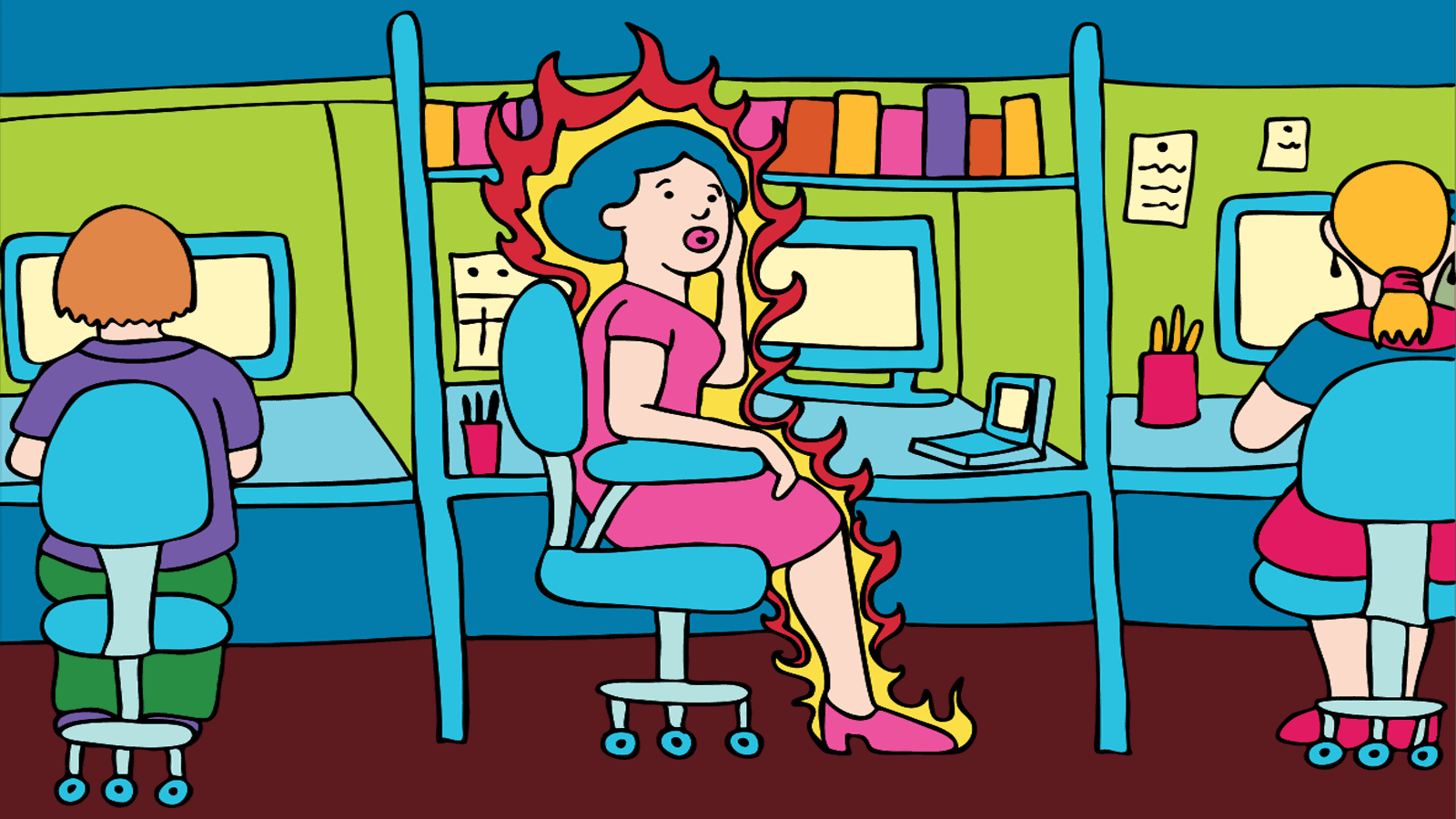Menopause usually happens to women when they are in their late forties or early fifties. When it happens to women during their thirties, it is called early menopause. Even with these age ranges, a woman can start to change at any time.
Early-onset menopause causes many symptoms, and it can lead to other issues, too. The conditions it can cause include both physical, mental, and emotional problems. Most of the symptoms are the same as regular menopause, and knowing those signs can help.
When this change occurs, a woman’s ovaries stop producing eggs, leading to low estrogen levels. Estrogen controls the reproductive cycle, and symptoms can begin long before menopause officially sets in. The symptoms that occur before menopause starts are part of a period called perimenopause.
If you think you have early onset menopause, knowing the causes and symptoms can help you determine if you should see a doctor. Your doctor can diagnose you and come up with a treatment plan to control the symptoms.
What Is An Early Menopause In Women?
Anytime a woman goes through “the change of life” before the age of 45, it is considered early onset menopause. Sometimes, there is a medical or surgical cause for early-onset menopause, but that isn’t always the case. When it sets in early without a definite reason, it is called primary ovarian insufficiency.
There are three stages, including perimenopause, menopause, and post-menopause. During perimenopause, the ovaries make fewer hormones, and the symptoms tend to be worse. When menopause begins, a woman’s period stops, and the ovaries stop releasing eggs as estrogen levels become severely low.
Once a woman has gone twelve months without a period, she enters the post menopause stage. At this stage, the uncomfortable symptoms begin to fade away.
In rare cases, even teens can experience these changes.
What Causes an Early Menopause?
It can be hard to determine the cause of menopause in every case, but there are some common causes to consider, including:
- Genetics: If there are no other definite causes, then genetics could be the culprit. The age that your mother started menopause sometimes determines when you’ll begin. Genetics doesn’t always cause early onset menopause, though.
- Smoking: Smoking can contribute to starting to see these changes early because of its anti-estrogen effects. Studies show that regular smokers might start menopause up to two years earlier than others.
- Chromosomal Defects: Some chromosomal defects prevent your ovaries from functioning correctly, causing menopause to set in early.
- Autoimmune Diseases: Rheumatoid arthritis, inflammatory bowel disease, and other autoimmune diseases can lead to early-onset menopause. As the immune system mistakes your body for an invader, it can sometimes cause damage to your ovaries.
- Surgery: If a woman has surgery to remove her ovaries or uterus, it leads to early-onset menopause. As the reproduction system no longer functions, hormone levels fluctuate. If you’re having either of these surgeries, your doctor will likely prepare you for early-onset menopause.
What Are The Symptoms Of An Early Menopause?
The symptoms of premature menopause are the same as when it usually occurs, with some additions, including these:
- irregular periods or none at all
- hot or cold flashes
- decreased sex drive
- vaginal dryness or discomfort during intercourse
- mood swings
- anxiety
- depression
- unexplained sadness
- difficulty controlling your bladder
- change in fat distribution
- weight gain
- dry skin and hair
- hair thinning or loss
- achy joints and muscles
- night sweats
- frequent urinary tract infections
- insomnia
- irritability
- dry mouth or eyes
- tender breast
- racing heart
- headaches
- difficulty concentrating
- memory lapses
Women That Are At Risk For Early Menopause
Now that you know the first signs of this change, you might wonder. What increases your chances of it happening to you?
- Women With Epilepsy: Studies show that women with this seizure disorder are more likely to experience premature ovarian failure. If the menstrual cycle triggers the seizures, as in catamenial epilepsy, the risk is even higher. The increased risk comes from the seizures’ effects on the hypothalamus or pituitary gland of the brain.
- Women That Went Through Chemotherapy or Radiation Therapy: Chemotherapy and radiation can damage the reproductive system and cause menopause to happen early. These treatments affect the ovary and its tissues, increasing the risk of menopause occurring early.
- Women With a Low BMI: Low body mass index can cause early onset menopause because fat tissue stores estrogen. If a woman doesn’t have much fat tissue, they won’t have as much of the hormone stored up. When the body stops producing as much, the estrogen from fat tissue depletes sooner.
- Women That are Vegetarians: A study published by the Journal of Epidemiology and Community Health found that diet plays a role in menopause. While the exact reason is unclear, researchers have found that it could be related to vitamin B6 and zinc deficiency.
- Women That Have a Thyroid Disease: Thyroid disease causes abnormal hormone levels, causing menopause to occur early. Issues with the thyroid can also cause symptoms similar to menopause, so treating your thyroid can help. Treatment will alleviate the symptoms and prevent the onset of early-onset menopause.
 Are There Any Health Complications Associated with Early Menopause?
Are There Any Health Complications Associated with Early Menopause?
Menopause is already bad enough on its own, but it also increases the risk of other health complications, including:
- osteoporosis
- colon and ovarian cancers
- periodontal disease
- tooth loss
- cataract formation
- loss of estrogen protection
- infertility
- high cholesterol
- heart disease
- dementia and other neurological diseases
- premature death
How Is Early Menopause Diagnosed?
There are a few ways that your doctor can perform tests for this situation, including the following:
- Diagnostic Tests to Check for Other Causes: If you have symptoms of early-onset menopause, your doctor will likely run several tests. You will get a blood test to check for other conditions, such as thyroid disease or pregnancy.
- Estradiol Test: Your doctor will also do an estradiol test to measure your estrogen levels. If you have low levels of estradiol, which is a form of estrogen, it means that your ovaries are beginning to fail. When estradiol levels drop below thirty, it indicates menopause.
- Test for Follicle Stimulating Hormone: Your doctor will likely want to do a test to determine the level of follicle-stimulating hormone (FSH) in your blood. FSH promotes estrogen production from your ovaries, and when the FSH levels increase, it’s a sign of menopause.
- A Physical Exam: During the physical exam, your doctor will look for other medical conditions that might be causing your symptoms. They’ll also ask about your family history and the regularity of your menstrual cycle.
How Is Early Menopause Treated?
While you can’t reverse this change, you can treat it to ease the symptoms and slow the progress.
- Eating a Healthy Diet: If you eat a nutritious diet, you’ll feel better emotionally and physically. Focus on adding more calcium and vitamin D to your diet to make you less vulnerable to osteoporosis.
- Exercising Regularly: Exercising can help you combat depression, anxiety, and other mental health issues. Plus, exercise can help prevent weight gain that often occurs during and after menopause.
- Avoiding Foods that Trigger Hot Flashes: Spicy foods can increase the frequency of hot flashes and worsen the episodes. Surprisingly, caffeine and alcohol also cause hot flashes. Avoid these foods to ease your symptoms.
- Hormone Therapy: Estrogen therapy can help ease your symptoms, specifically hot flashes. Hormone replacement therapy can help decrease the frequency and make any episodes easier to handle.
- Staying Hydrated: These changes can cause dry hair, skin, and nails, but drinking plenty of water can help. If you stay hydrated, the dryness won’t be as damaging or uncomfortable.
- Professional Counseling: Find a professional therapist if you don’t have friends or family you feel comfortable confiding in. They can help you work through the changes you’re experiencing, and you can find positive ways to overcome them. Since these changes in your body can cause depression and anxiety, finding a trusted outlet can help.
What Is The Outlook Of Women With Early Menopause Symptoms?
Menopause is unlikely to reverse once it has set in, so there is no cure for it. If these symptoms started early for you, there isn’t much you can do to prevent it from progressing.
You can treat the emotional and physical symptoms that accompany these changes in your body, though. By treating these symptoms, you will have an easier time transitioning through this life change.
Scientists are researching ways to reverse the effects and help women in this phase of life to have babies, but more research is needed. During the study, scientists injected women’s ovaries with platelet-rich plasma (PRP).
Initial results show that the PRP worked for nearly two-thirds of the treated women. With the small test size and lack of a control group, it can’t be confirmed yet.
 Final Thoughts on Early Menopause: Understanding the Causes, Symptoms, Diagnosis, and Treatment
Final Thoughts on Early Menopause: Understanding the Causes, Symptoms, Diagnosis, and Treatment
Premature menopause is life-changing, but with a good treatment plan, you can manage it better. Watch for the symptoms, and visit your doctor to determine a diagnosis and begin treatment right away. The sooner you seek professional help, the sooner you can start feeling better.
If you aren’t feeling terrible yet, starting treatment right away can make the transition easier and prevent worsening conditions. Plus, you can learn more about what to expect as you experience this stage of your life.
While it’s hard to determine the exact cause of early-onset menopause, consider the risks you have. You can make lifestyle changes to reduce and ease the symptoms. While there is no cure, you can get through it with the best care, treatment, and support.




















